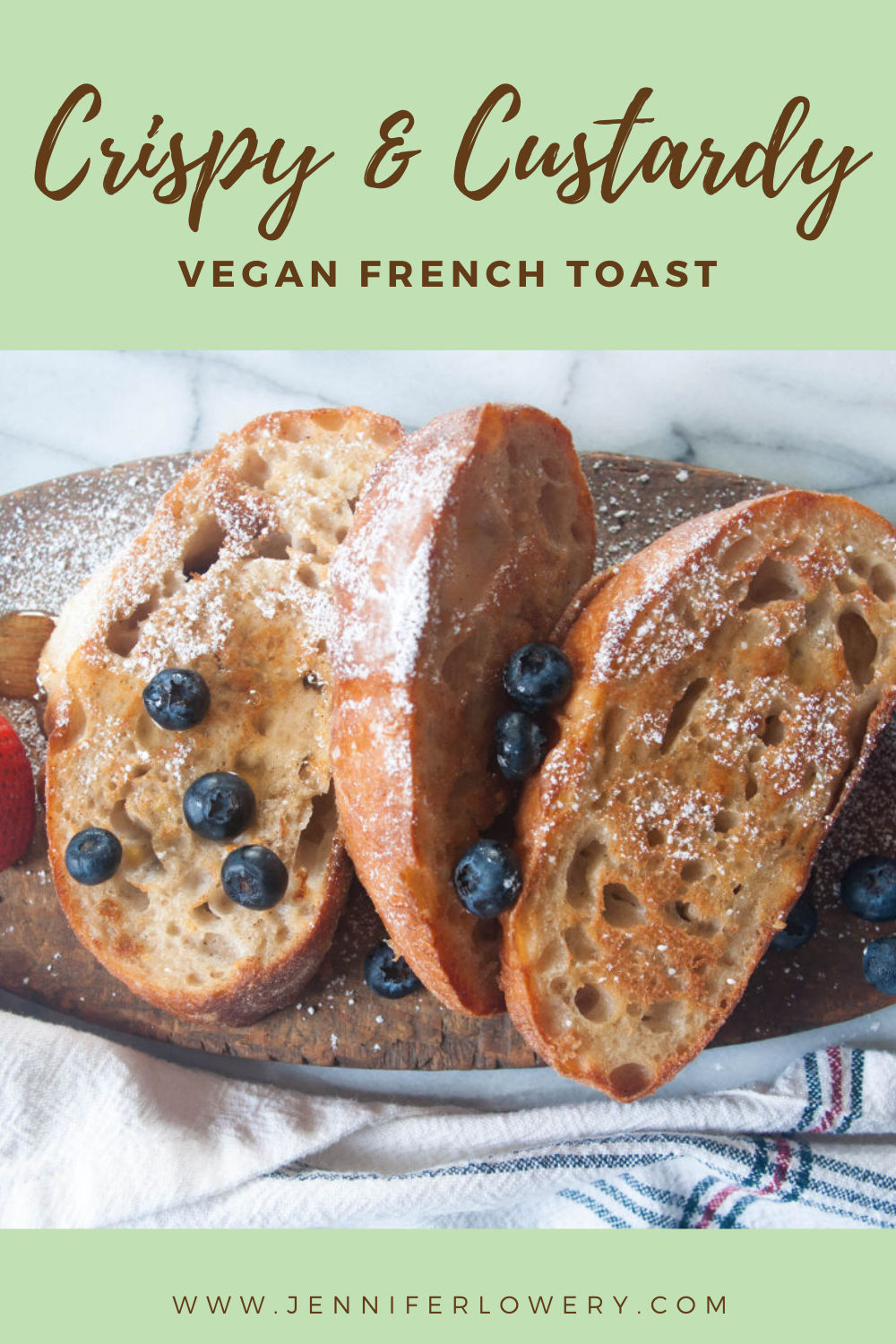Crispy on the outside with all the custard goodness on the inside, this Easy Vegan French Toast recipe is one the whole family will want to wake up to!
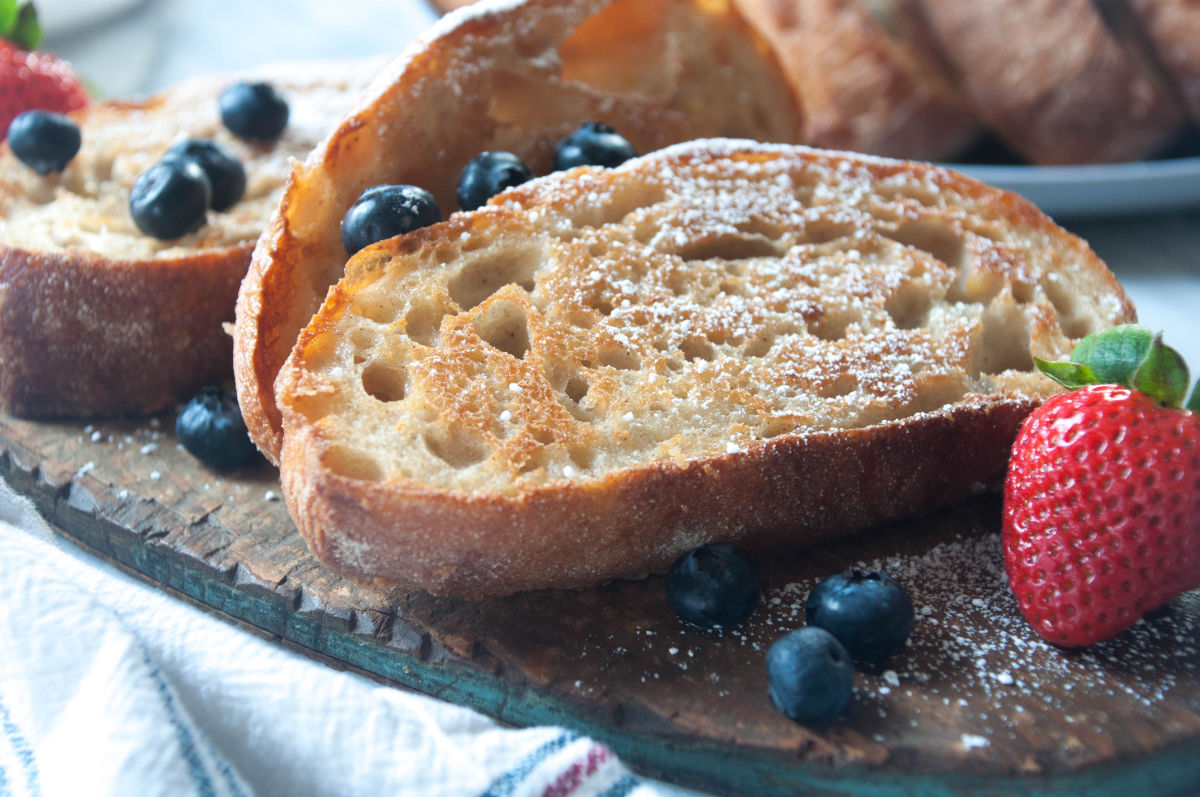
This post may contain affiliate links. Read my full disclosure here.
Homemade french toast is always a crowd pleaser, and it’s one of the most popular breakfast staples for good reason – it’s decadent and super easy to make. A crusty slice of bread, the cinnamon spice aroma, that custardy center, and maple syrup drizzled on top – it’s a slam-dunk breakfast. Plus it requires less than 10 ingredients and is ready to feed a crowd in less than 30 minutes!
What You’ll Need to Make This Recipe
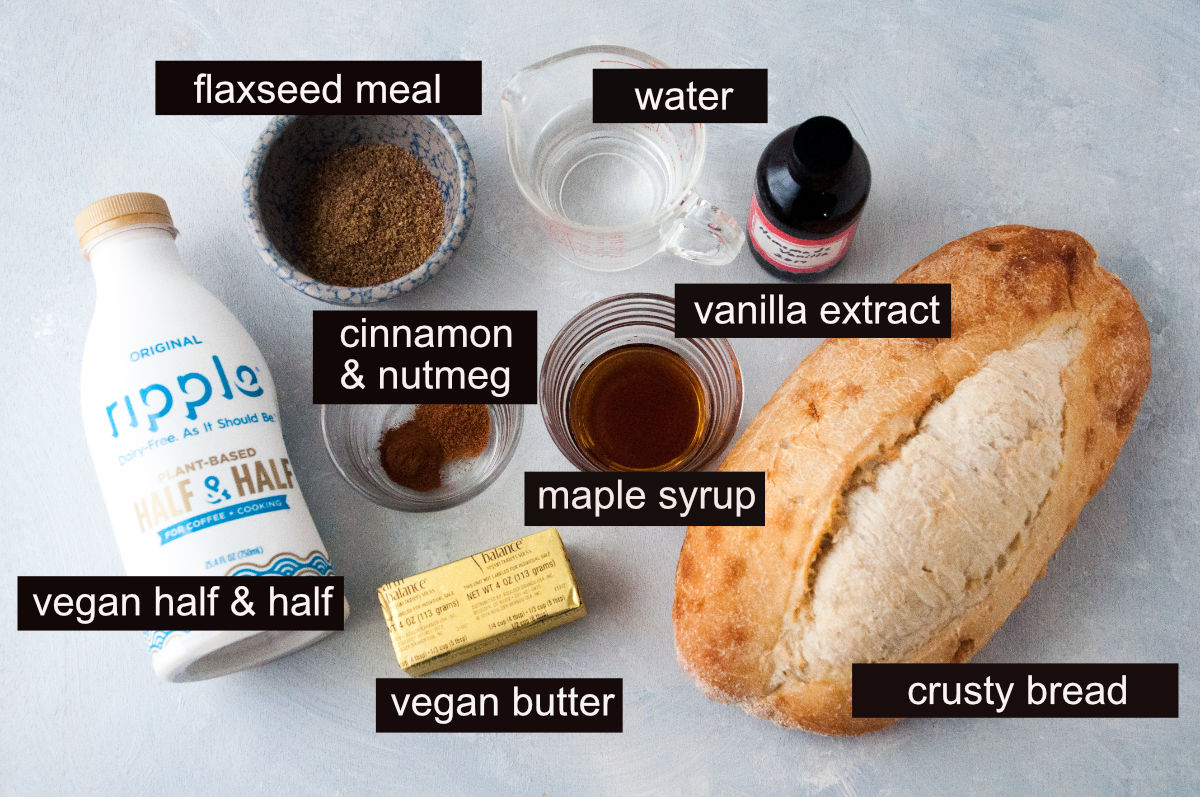
- Vegan butter for frying. I use stick butter from either Earth Balance or Miyoko’s
- Crusty bread such as ciabatta or french. It should be about a day old and somewhat stale
- Flax eggs (ground flaxseed & water) to replace the traditional french toast recipe’s dairy eggs
- Plant-based half-and-half such as Ripple half & half
- Cinnamon & Nutmeg
- Maple syrup
- Vanilla extract
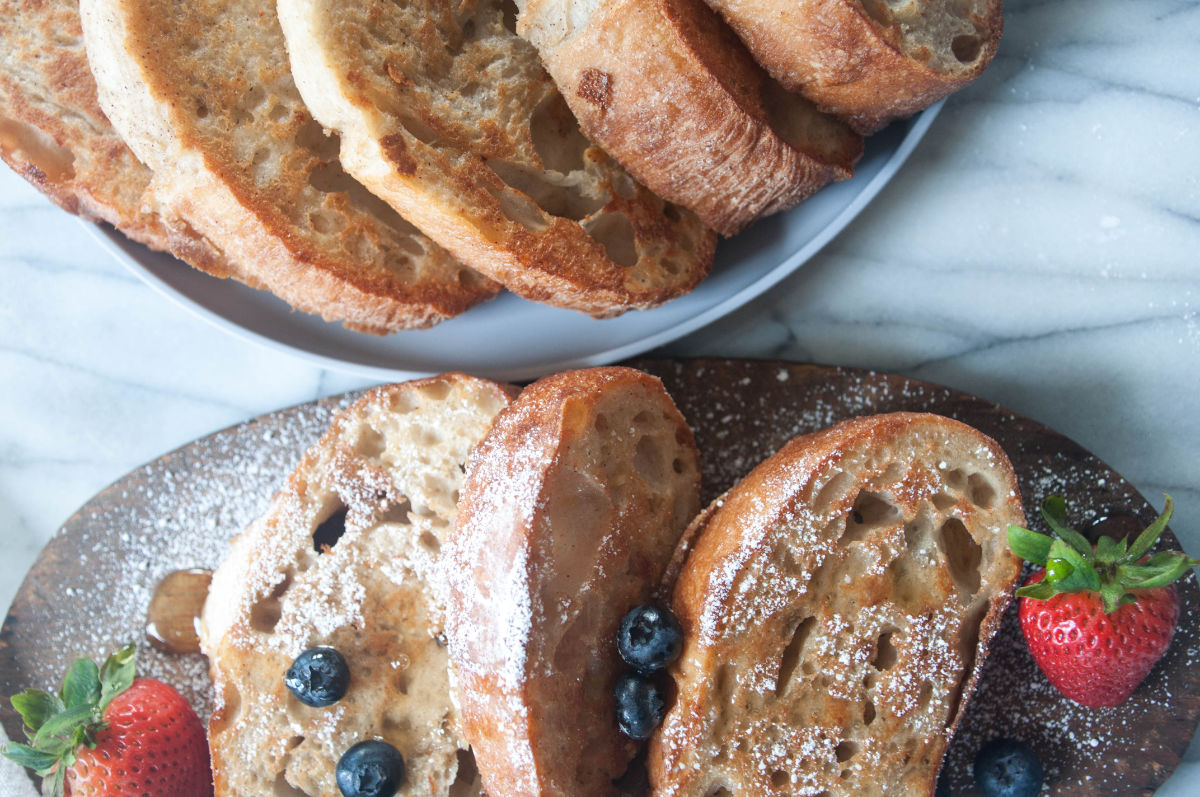
Vegan French Toast FAQ
Yes! You can mix all the ingredients together (leaving out the butter and bread slices), cover the mixture and refrigerate until it’s ready to use the next morning.
Types of bread that work great for this recipe are ciabatta, french, vegan challah, gluten-free versions of those types, or even a baguette (serving size will vary depending on bread type, 1 large slice is considered 1 serving for this recipe). The bread needs to be crusty, slightly stale (about a day old), and sliced evenly (around 1”) for best results.
You can substitute vegan creamer (such as Califia Farms) for the vegan half and half. I plan to also try using coconut cream next. I’ll update and let you know if it’s a good one to try!
Favorite french toast toppings are maple syrup, vegan butter, vegan whipped cream, or fresh fruit.
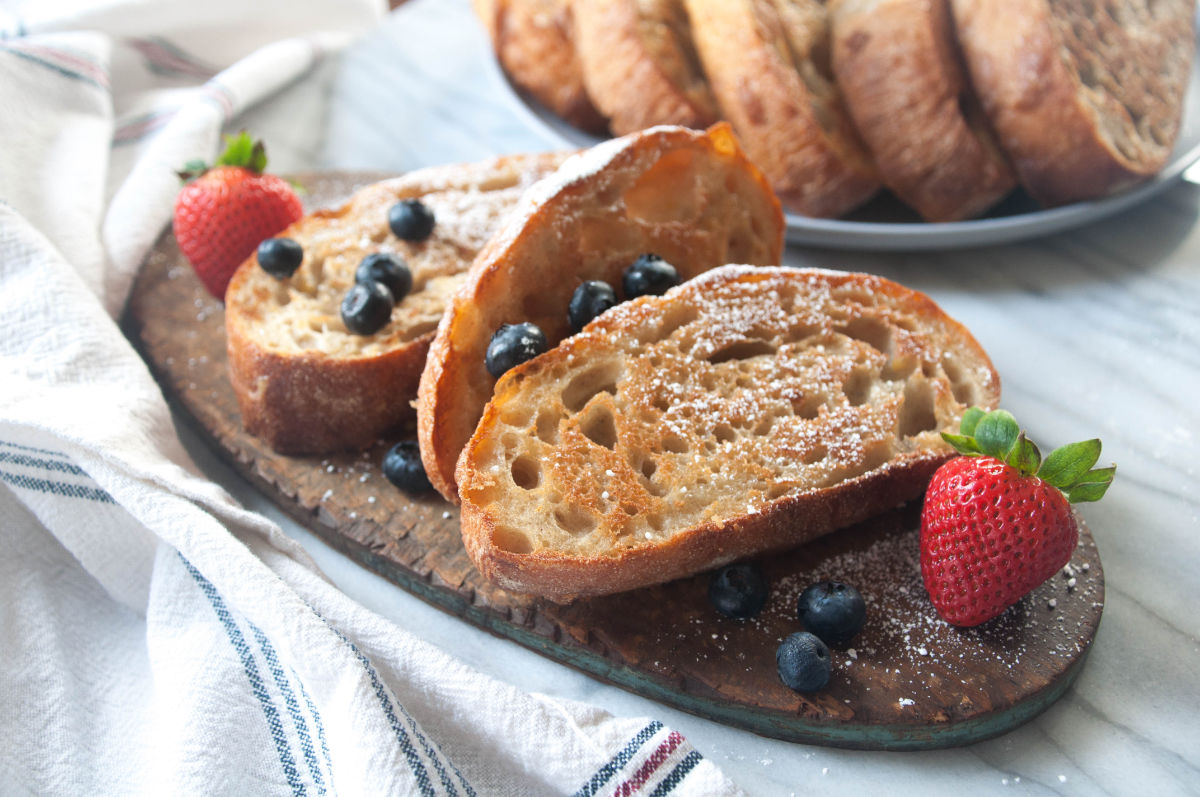
Did you make this recipe?
Tag @thejenniferlowery on Instagram and hashtag it #jenniferlowery so we can see all the deliciousness! Make sure to also comment with your feedback below!
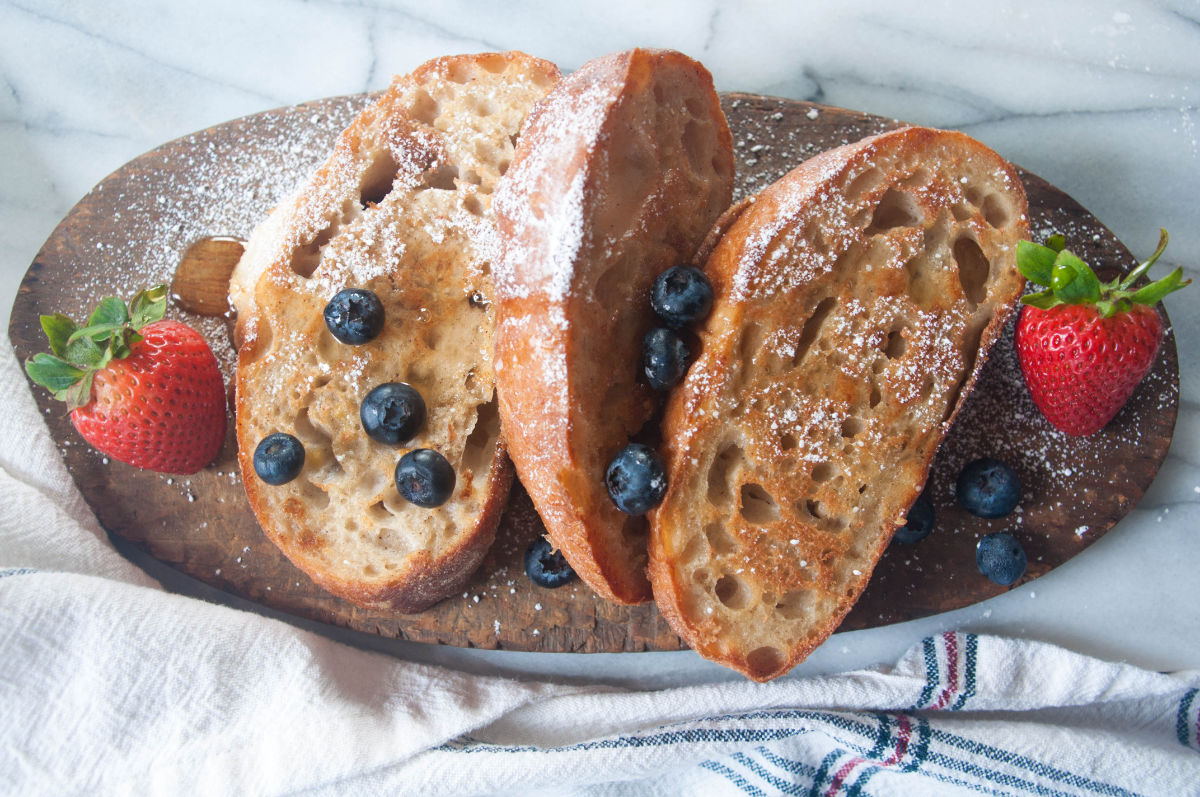

Easy Vegan French Toast
Ingredients
- 2 tablespoons (14g) vegan butter for frying
- 6-8 slices crusty bread such as ciabatta or french, should be somewhat stale
- 3 flax eggs (3 tablespoon [21 g] ground flaxseed, 2/3 cup [135 g] of water)
- ¾ cup (170 g) plant-based half-and-half such as Ripple half & half
- 1 teaspoon cinnamon
- ½ tsp nutmeg
- 2 tablespoons maple syrup
- 2 teaspoons vanilla extract
Instructions
- In a small bowl, make the flax eggs. Add in 3 tablespoon [21 g] ground ground flaxseed, 2/3 cup [135 g] of water. Mix together, and let sit for 15 minutes to set up and thicken.
- In a medium bowl, whisk together the flax eggs, coconut cream (or plant-based half-and-half), cinnamon, nutmeg, maple syrup, and vanilla extract. Transfer the mixture to a baking dish.
- Heat a large skillet over medium heat (or 300 °F [ 149 °C] for an electric griddle), melt 1 TBSP of vegan butter.
- Place bread slices in the pan, let them soak for about a minute. Flip pieces over and repeat for another minute. The bread should absorb some of the liquid without becoming too soggy.
- Once the skillet is hot, place soaked bread, 2-3 pieces at a time, onto skillet or griddle. Cook about 2-3 minutes per side, until golden brown and speckled. Remove from heat and set aside. Add more vegan butter to the pan as needed in between pieces of bread.
- When all the pieces are cooked, serve with your favorite french toast toppings.
Notes
- Types of bread to use that work well in this recipe are ciabatta, french, vegan challah, gluten-free versions of those types, or even a baguette (serving size will vary depending on bread type, 1 large slice is considered 1 serving for this recipe). The bread needs to be crusty, slightly stale (about a day old), and sliced evenly (around 1”) for best results.
- Top with maple syrup, vegan butter, vegan whipped cream, or fresh fruit
- Substitutes — You can substitute vegan creamer (such as Picnik) for the vegan half and half. I plan to also try using coconut cream next. I’ll update and let you know if it’s a good one to try!
- Make ahead – After completing Step 2, cover the mixture and refrigerate until it’s ready to use the next morning.
